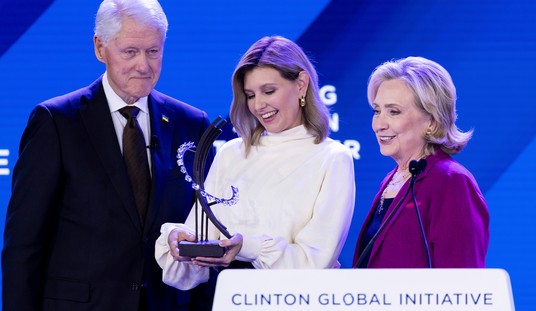Media criticism has been the bread and butter of the blogosphere from its opening days, especially for conservatives who pushed back against the liberal bias of the mainstream media. The scope of those efforts have run the gamut from fact-checking news pieces to exposing biases of top-ranking executives, such as Eason Jordan at CNN. Media Matters for America was formed as a left-wing analog to the more grassroots efforts in the conservative blogosphere to push back against the pushback and to focus criticism on conservative news and opinion outlets, including Hot Air on more than one occasion.
All of this is perfectly fair game. Media critique is a game anyone can play, and it’s hard to argue that this kind of accountability is somehow bad for business. But is it legitimate to declare that these efforts will consist of “sabotage” and “guerilla warfare”?
The liberal group Media Matters has quietly transformed itself in preparation for what its founder, David Brock, described in an interview as an all-out campaign of “guerrilla warfare and sabotage” aimed at the Fox News Channel.
The group, launched as a more traditional media critic, has all but abandoned its monitoring of newspapers and other television networks and is narrowing its focus to Fox and a handful of conservative websites, which its leaders view as a political organizations and the “nerve center” of the conservative movement. The shift reflects the centrality of the cable channel to the contemporary conservative movement, as well as the loathing it inspires among liberals — not least among the donors who fund Media Matters’ staff of about 90, who are arrayed in neat rows in a giant war room above Massachusetts Avenue.
“The strategy that we had had toward Fox was basically a strategy of containment,” said Brock, Media Matters’ chairman and founder and a former conservative journalist, adding that the group’s main aim had been to challenge the factual claims of the channel and to attempt to prevent them from reaching the mainstream media.
The new strategy, he said, is a “war on Fox.”
This isn’t unique language in the grassroots media-criticism industry. A few individual bloggers have expressed a desire to destroy certain media outlets through criticism, and it’s certainly not unusual for conservatives to cheer the misfortunes of the New York Times, for instance. However, the scale of MMFA and its reported $10 million budget put those boasts in a different and somewhat more credible light.
In the Green Room, Jazz Shaw argues that watching the watchers isn’t a bad thing at all, with Fox or any other media outlet:
Yes, I recognize the knee-jerk response to say that NPR and PBS both receive taxpayer dollars and should be held to a higher standard of transparency. But they do operate as media entities, not government agencies. Further, the media – especially the portion of it covering politics and government – are pretty much a de facto fourth branch of the government anyway. That description was enshrined by the founders right in the first amendment. Doesn’t the public have a right to know what’s going on with the people who provide the news, even if it’s a private corporation?
For that matter, doesn’t any corporation which provides goods or services to the public deserve some level of scrutiny so consumers can shop wisely? If a production line manager at a baby food company had a history of arrests for poisoning food, wouldn’t you want to know that before you made a purchase?
And let’s remember that this is a completely private outfit (MMFA) doing the investigating, not the United States government, so arguments about unconstitutional prying eyes doesn’t really cut it here.
In the end, if you honestly believe that Fox news isn’t up to anything improper, then they have nothing to worry about. And if MMFA just starts making things up out of thin air to attack them, that should be easily proven and potentially even open up the “watchdogs” to court proceedings over slander, etc.
I mostly agree with Jazz here, except that MMFA isn’t just pledging to be a “watchdog.” They’re promising “sabotage,” which sounds less like investigative journalism and more like dirty tricks, aimed not at the reporting itself but at mid-level management at Fox. If that consists of the same kind of undercover videos produced by James O’Keefe at ACORN and NPR, that’s fair game; the media have used stings like those for decades. That’s hardly “sabotage,” though, which sounds like efforts at a completely different — and more base — level.
This may all be self-correcting anyway. The success of media criticism comes in large part from the credibility of the critic. When critics, whether a single person or a corporate entity, pledge that their mission is “sabotage,” they’ve essentially ceded that credibility from the start — and MMFA doesn’t exactly overflow with credibility as an independent watchdog now.
Update: Brandon Kiser argues that this should change MMFA’s tax status.









Join the conversation as a VIP Member